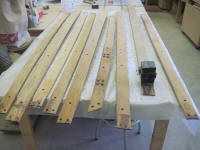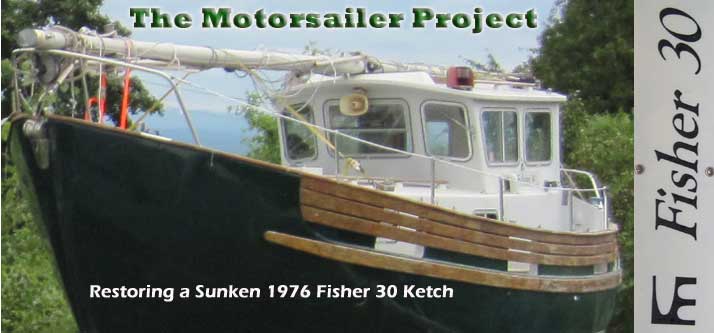Project Log: Sunday, January 9, 2011
I spent a little bit of time sorting through the pile of
newly-sanded teak bulwark trim pieces, inspecting each
piece and setting aside those that required any sort of
gluing, bunging, or other repair. Most of the
issues I found were located at too-thin half-lapped
board ends, many of which featured slim cracks emanating
from the ends. One of the boards had some old
fastener holes (probably from swim ladder
brackets) that I decided to bore out and bung.
After prepping the boards as needed, I mixed up more
epoxy with teak dust and cabosil and did what I needed
to do. Most of the cracks I hoped to stabilize
were too thin to truly glue together, so, much like that
squiggly tar that road crews put in the pavement cracks,
I applied the epoxy to the surfaces of the cracks,
getting it into the seams wherever possible.
None of this was ideal: the wood isn't ideal (it
wasn't ideal when it was new, as none of it is prime
teak stock), the repairs aren't ideal, and the original
installation wasn't ideal, but for what these were, all
this ought to be fine. The wood cleaned up quite
well, and I was sure these pieces would look very good
once varnished, despite the inherent flaws.
The boards would be stable once reinstalled; none of the
joints are under stress in their installed locations, and the
cracks would cease to become an issue, but at a minimum
I hoped that these attempts to seal and stabilize the
cracks would help minimize the ingress of water into
these cracks and, in turn, behind the varnish. |

|
Unfortunately, this was all I had time for.
|
Total Time Today: .75 hours
|
<
Previous | Next > |
|
|


